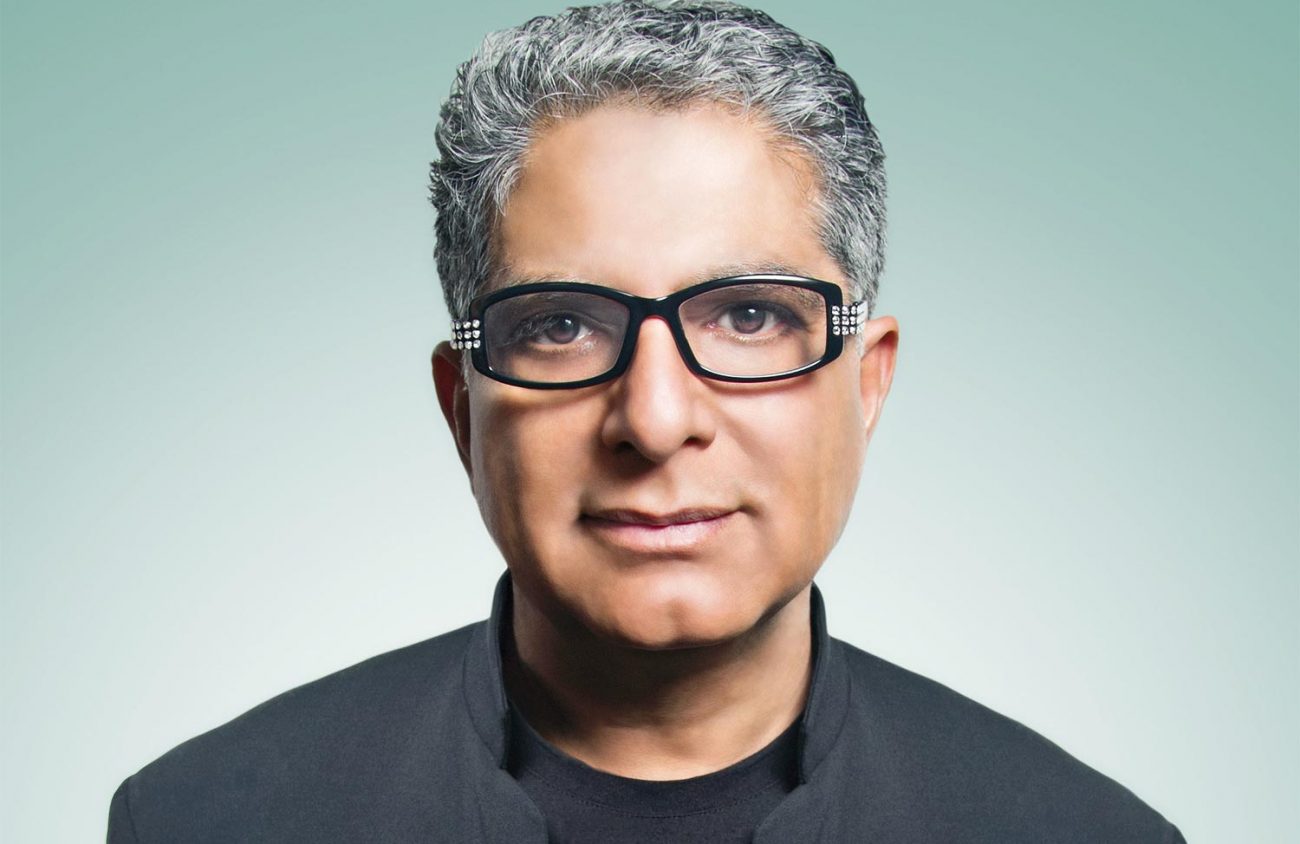“I’m 71 and a half. I’ve never been hospitalized, never had surgery, never had to have any medical treatment. I follow a healthy lifestyle and I feel as good as I did in my 20s, sometimes better,” says Deepak Chopra, renowned doctor, author and advocate for alternative health and wellness.
Chopra says he doesn’t like the term “alternative,” though. He prefers “integrative” and, he says, he’s been working to change the stigmas and biases against this type of work for years.
Originally from India, Chopra is a popular figure of the “new age” healing movement. He is an internist and endocrinologist and teaches at the medical school at the University of California, San Diego.
Chopra has written more than 80 books, many of them New York Times best sellers.
He speaks in Eugene about “The Future of Wellbeing” on Wednesday, May 9, at the Hult Center.
“Modern pharmaceutical and surgical approaches are very useful for acute illness, but as far as chronic illness, the vast majority of illness in our society,” Chopra says — including illnesses like cancer, infections and autoimmune illnesses in this category. “Ninety-five percent of those gene mutations that are linked to chronic illness are influenced by the quality of our life including the quality of our sleep, how we manage stress, our emotions, our nutrition, our exercise, our breathing patterns, our mind-body coordination, our connection with nature. All this influences the expression of well-being or disease in our body.”
Much of Chopra’s work focuses on that mind-body connection and how the wellness of the mind affects the health of the physical body. To improve the health of the mind-body, Chopra encourages mindfulness practices like meditation.
In fact, he says, at the end of his Eugene talk he’ll be leading a meditation with the audience.
Many critics and skeptics have attempted to denounce his work throughout the years, he says, but Chopra insists that integrative medicine is now more mainstream than ever.
“The fact is, there’s no explanation for existence or experience anyway, so if people are benefitting, then we need to understand the mechanics of how they are benefitting,” Chopra tells Eugene Weekly. “And right now, more people are going for integrative medicine than for what we call mechanistic, reductionist medicine.”
A significant stigma remains around mental health and wellness — especially in America. Chopra says he has hopes for that to change over time.
“The stigma is a result of the biases and prejudices based on a very old-fashioned, obsolete way of thinking,” he says. “And those things take time, you know? It took time to understand gender equality or racial equality or social justice, and so many issues in the world that had been so archaic in the way we deal with them.”
Chopra is not only taking on the health of the individual but the health of the world in his newest book, The Healing Self, co-written with Rudolph E. Tanzi, a professor of neurology at Harvard University. In the book, Chopra says, he and Tanzi discuss how to manage chronic stress and inflammation.
He says, additionally, that the mind-body of the world itself is inflamed.
“Like the word suggests, inflammation means to be on fire,” Chopra says. “So right now, the world is literally inflamed through hostility and anger, through war and terrorism and social and economic injustice to climate change and global warming and nuclear weapons. We are an inflamed body-mind globally, and not a healed mind. So our book deals with how we can return to homeostasis and healing.”
Taking on the well-being of the world as a whole is a daunting task, but it’s no surprise that with his ambition and adherence to patience, Chopra would be the one to do it.
Deepak Chopra speaks 7:30 pm Wednesday, May 9, at the Hult Center. Tickets range from $35-$85, with VIP packages available.
